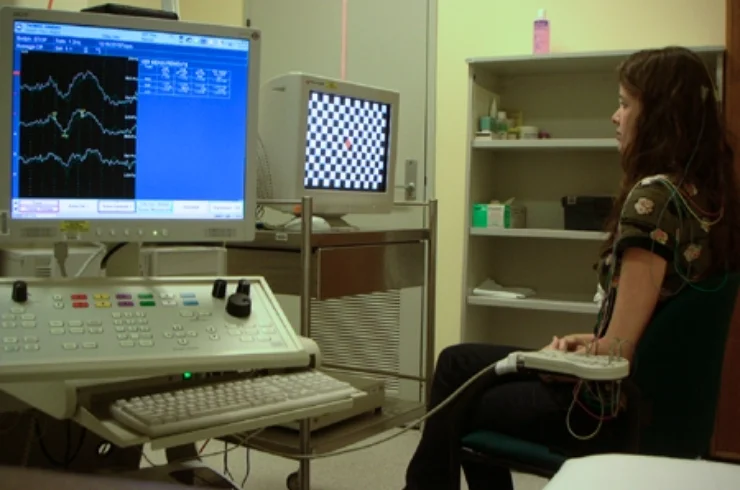Services
Need any help?

At Dr. Pampaniya’s Neuro Hospital and ICU, we use advanced tests like Visual Evoked Potentials (VEP) to understand how your brain responds to what your eyes see. It’s a safe, non-invasive test that helps detect vision and nerve-related problems—even before symptoms become severe.
What is a VEP Test?
The VEP test measures how quickly and accurately your brain reacts to visual signals. During the test, you’ll be asked to focus on a screen showing flashing lights or moving patterns while small sensors (electrodes) are placed on your scalp.
These sensors record the electrical signals that travel from your eyes to your brain’s visual center.
🧠 VEP does not cause pain and does not involve radiation or injections. It’s completely safe and takes about 30–45 minutes.
Why Might You Need a VEP Test?
Your doctor may recommend a VEP if you are experiencing:
-
Blurry or double vision
-
Vision loss that comes and goes
-
Eye pain with movement
-
Suspected optic nerve issues
-
Multiple sclerosis (MS) or other neurological diseases
-
Delayed visual development in children
VEP helps detect damage or delay in the optic nerve pathway, even if standard eye tests appear normal.
How to Prepare
-
No special preparation is needed.
-
Bring your glasses or contact lenses if you use them.
-
Wash your hair and avoid using oil or gel.
